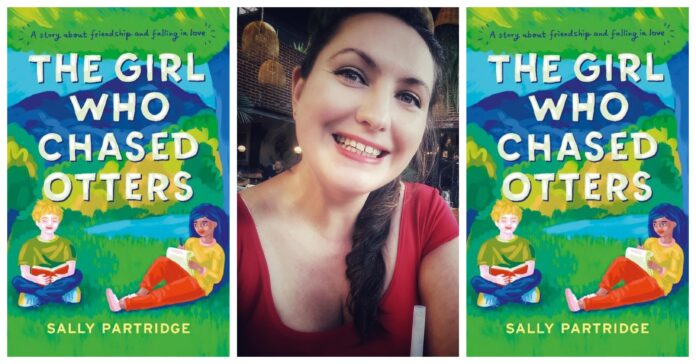In her latest book, The Girl Who Chased Otters, award-winning novelist, Sally Partridge brings to life the complexity of being a young adult. One of the most well-known South African writers in teen and young adult fiction, Partridge spoke to The Daily Vox about her book.
The Girl Who Chased Otters is a book that centres around Nathan, a teenager in Cape Town. Nathan is on the autism spectrum and has never cared much for fitting in with the others at his school. He has one friend who goes to another school whom he plays video games with in his freetime but other than that he doesn’t have much interactions. This is until Olivia, a girl at his school, asks him for help in becoming popular. Due to observations of the others in school, Nathan is a good judge of human behaviour and character. He agrees to help Olivia but finds himself drawn in the messy and complicated world of teenagers.


Oftentimes young adults and teenagers find their troubles and issues considered unimportant by adults. In Partridge’s books, not only does she not do that but she also shows how young adults are often forced to experience “adulthood” quicker than they should. The book has several content warnings for bullying, self-harm/suicide and sexual assault which are important for anyone reading the book. It is within these themes that Partridge shows the struggles of Nathan, Olivia and the others around them.
However, above the struggles and the bad things, the book is about hope and acceptance and why it’s so important.
RELATED:
Why We’re Reading YA Well Into Our Adult Years
What was the inspiration for The Girl Who Chased Otters?
As with all my books, I get nibbles of inspiration from multiple places – Evan Peters’ face, a young couple reading books under a tree, my own experiences as an outsider looking in, and my psyche trying to come to terms with a troubled past. I wanted to write a book from two opposite perspectives: the outsider comfortable in their own skin who has no desire to fit in, and the insecure adolescent desperate for popularity. Each of these perspectives come with their own challenges, and it’s these challenges that form the backdrop to the love story.
What was the writing process like?
For me the writing process is very organic and comes naturally. I write in large chunks, starting at the beginning and then continuing to the end. Writing from the perspective of someone with Aspergers was very easy for me as I’ve always suspected I’m on the spectrum. Like Nathan, it’s easier for me to observe than engage, and I’m very self-aware, so it almost feels like I am writing from my own perspective, just wearing someone else’s lenses.
How did you balance a story about first love and relationships with serious topics like assault and bullying?
Contemporary fiction is based on real life, and real life is not a perfect canvas by any means. Humans are resilient, and teenagers even more so, so falling in love and facing incredibly difficult challenges can happen simultaneously. It’s life. It’s messy, and yet we somehow endure.
All your books deal with very serious issues but then again these are all issues affecting young people. Why is it so important to showcase these, especially for older people who might not understand these realities?
Young people in South Africa face a multitude of challenges, and often they have to deal with and overcome these challenges themselves. Coupled with peer pressure, these challenges can seem impossible. When I was young, my parents had their own struggle with trying to make ends meet, which left the door open for me to get into real trouble. I found myself making one mistake after another and putting myself in real danger. So a lot of the time I am writing from real experience and trying to come to terms with it, and in doing so will hopefully help a young reader going through the same thing.
How would you view the YA genre in South Africa?
There’s a wonderful range of YA fiction in South Africa in all languages that span every genre from science fiction and horror to romance and contemporary. The schools are also starting to include local YA fiction and short stories into their curriculums which is a wonderful way to expose young readers to local authors.
What message do you hope people take from the book?
Even though life seems dark, and you can’t see a way out right now, the bad times do end, and we come out stronger. You are worthy of love and happiness, no matter how you feel about yourself. You’re perfect just the way you are.
Featured image provided by Modjaji Books
The book is available at all good bookstores locally, Loot, Takealot, www.modjajibooks.co.za, African Books Collective, Amazon, Barnes & Noble and Book Depository.









